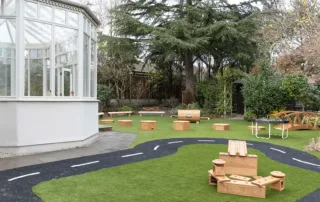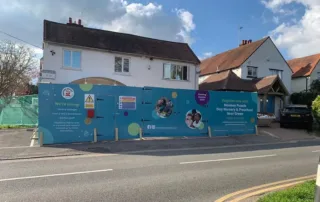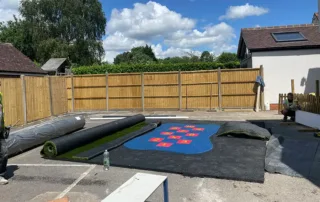At Monkey Puzzle Day Nurseries, the Franchising Team at Head Office are responsible for supporting franchisees with the property process. Acquiring a commercial premises and converting the building to a children’s day nursery can be challenging, however, Monkey Puzzle has a robust property process and experienced team in place to support our network of franchisees.
There are 6 fundamental stages of the commercial property acquisition process – we have outlined below top tips and key considerations for each of these stages:
Stage 1 – Finding a Property
- Conduct research and consider which factors about a property will influence the success of your business – for example, an external area is vital for a day nursery and a high quality space could directly impact the number of parents who register with you
- Have in mind clear and concise property requirements and expansion locations to share with key contacts
- Build and maintain strong working relationships with agents and investors in the sector and advertise your requirements via multiple channels
- Regularly carry out desk-top research to help source a property within your desired catchment
Stage 2 – The Deal
- Carefully consider which terms will be financially viable for the business – it is futile offering a higher rent or a shorter rent-free period if it is not feasible
- Think long term – how long do you wish to operate the business for? What is your end goal? Offer terms which suit your business strategy and objectives
- As a commercial business, it is important to consider whether you’d like your lease to be contracted inside or outside of the Landlord and Tenant Act 1954 – the LL & T Act 1954 affords the right of renewal to commercial tenants, however landlords often have differing opinions as to whether to include this term
- It is typical for an offer on a commercial building to have a number of conditions associated with it to protect your interests, examples of these include: subject to planning, subject to survey, subject to contract, subject to vacant possession – consider the context around your chosen building to establish which conditions are relevant to you
Stage 3 – Pre-Acquisition Due Diligence
- Conduct a site visit to determine whether the property is operationally and financially viable for day nursery use
- Carry out research on competitors in the area and consider whether the demographics of the local catchment suit your needs
- Have experienced building, structural, and drainage surveyors inspect the building and provide a report on their findings
- Maintain regular communication with your solicitor and landlord/seller to ensure all parties are working collaboratively and the transaction is progressing in a timely fashion
Stage 4 – Planning
- Before taking on a commercial building, it is vital to liaise with a planning consultant who can advise if planning is required
- If planning permission is needed for the works you wish to carry out or to change the use class of the premises, it is advisable to instruct a planning consultant who can support you with the following: which applications are necessary, the work required to submit the application(s), the cost, and estimated timescales
- Planning applications can be a lengthy process and are often contentious, therefore it is prudent to communicate regularly with all parties involved in the transaction
Stage 5 – Design & Tenders
- Instruct an architect to produce a detailed design pack – this will contribute to a planning application (if applicable), the tender pack for contractors, and is best practice to ensure key information associated with the premises is stored
- Spend time fine-tuning the detail you require within your schedule of works – the more detail you can provide a contractor with, the more accurate their tender return will be
- The aim should be for at least 3 contractors to price for a project; having multiple tender returns allows you to establish if the quote is fair and provides a comparison so you can see how the pricing stacks up against competitors
Stage 6 – Construction & Handover to Franchisee
- As a minimum, weekly meetings should be scheduled between the operator, the chosen contractor and any relevant stakeholders to ensure works are on track and communication is managed well
- At the start of the build project, it is helpful to consider the following: take meter readings and manage utilities as a priority, if the building will be vacant during your occupation security may be required, hold a pre-start meeting with key parties prior to building works commencing
- At the end of the build project, it is helpful to consider the following: a formal handover from the contractor to the operator, confirmation of the dates of the defects period, maintenance contracts with contractors
Overall, the consistent theme across all stages of the acquisition process is communication; this is crucial to ensure a smooth project journey and maintenance of important stakeholder relationships throughout the process.

Sophie Hailey
Acquisitions Manager – Monkey Puzzle Day Nurseries
Sophie is the Acquisitions Manager at Monkey Puzzle Day Nurseries. Working within the Franchising Team, she supports the network of nurseries with everything related to property, from initial assessment and acquisition of new properties to working with external stakeholders as new nursery sites prepare for opening.
Sophie is incredibly passionate about our franchisees’ journeys and loves supporting them as they fulfil their dream of opening their own nursery business.





